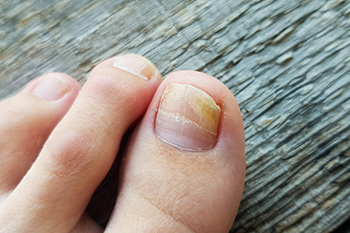Connect With Us
Blog
Items filtered by date: December 2021
Plantar Fasciitis Prevention
 Plantar fasciitis is one of the most common foot injuries and the most frequent cause of heel pain. This condition occurs when the plantar fascia, a ligament that runs along the bottom of the foot, becomes inflamed usually due to repetitive stress and overuse. When the plantar fascia is injured, you may feel a sharp, stabbing pain in your heel and have pain in the arch of the foot. The pain is often at its worst when you take your first few steps in the morning or after a long rest. Fortunately, plantar fasciitis is both treatable and preventable. To prevent plantar fasciitis, it is suggested that you wear comfortable, well-fitted, supportive shoes, rest your feet after a workout or after standing for an extended amount of time, and stretch your feet regularly. If you are suffering from heel pain, don’t hesitate to schedule an appointment with a podiatrist near you.
Plantar fasciitis is one of the most common foot injuries and the most frequent cause of heel pain. This condition occurs when the plantar fascia, a ligament that runs along the bottom of the foot, becomes inflamed usually due to repetitive stress and overuse. When the plantar fascia is injured, you may feel a sharp, stabbing pain in your heel and have pain in the arch of the foot. The pain is often at its worst when you take your first few steps in the morning or after a long rest. Fortunately, plantar fasciitis is both treatable and preventable. To prevent plantar fasciitis, it is suggested that you wear comfortable, well-fitted, supportive shoes, rest your feet after a workout or after standing for an extended amount of time, and stretch your feet regularly. If you are suffering from heel pain, don’t hesitate to schedule an appointment with a podiatrist near you.
Plantar fasciitis can be very painful and inconvenient. If you are experiencing heel pain or symptoms of plantar fasciitis, contact one of our podiatrists from Tri-Town Podiatry. Our doctors can provide the care you need to keep you pain-free and on your feet.
What Is Plantar Fasciitis?
Plantar fasciitis is the inflammation of the thick band of tissue that runs along the bottom of your foot, known as the plantar fascia, and causes mild to severe heel pain.
What Causes Plantar Fasciitis?
- Excessive running
- Non-supportive shoes
- Overpronation
- Repeated stretching and tearing of the plantar fascia
How Can It Be Treated?
- Conservative measures – anti-inflammatories, ice packs, stretching exercises, physical therapy, orthotic devices
- Shockwave therapy – sound waves are sent to the affected area to facilitate healing and are usually used for chronic cases of plantar fasciitis
- Surgery – usually only used as a last resort when all else fails. The plantar fascia can be surgically detached from the heel
While very treatable, plantar fasciitis is definitely not something that should be ignored. Especially in severe cases, speaking to your doctor right away is highly recommended to avoid complications and severe heel pain. Your podiatrist can work with you to provide the appropriate treatment options tailored to your condition.
If you have any questions please feel free to contact our offices located in Arlington, Canton, and Chelsea, MA . We offer the newest diagnostic and treatment technologies for all your foot and ankle needs.
See Your Podiatrist Regularly If You Work On Your Feet
Typical Forms of Heel Pain
The most common form of foot and ankle pain is heel pain. This condition can be caused by mechanical issues in the foot, wearing improperly fitted or inappropriate shoes, and overusing the heel in physical activities. Some typical forms of heel pain include: plantar fasciitis (when the tissue on the sole of the feet becomes inflamed), heel spurs (when wear on the heel causes calcium to deposits on the heel bone), sever's disease (when the growth plate in the heel of a growing child becomes irritated from wear), heel bumps (bony protrusions which form at the back of the heel typically due to ill-fitting shoes), Achilles tendinopathy (repeated stress where the Achilles tendon meets the heel), heel neuritis (nerve entrapment on the bottom of the heel), and heel bursitis (when the Bursa sac of fluid which protects the Achilles tendon gets irritated due to excessive stress). If you have any pain in your heel, it is suggested that you make an appointment with a podiatrist who will perform a physical exam and run tests to determine what is causing your heel pain and how best to treat it.
Many people suffer from bouts of heel pain. For more information, contact one of our podiatrists of Tri-Town Podiatry. Our doctors can provide the care you need to keep you pain-free and on your feet.
Causes of Heel Pain
Heel pain is often associated with plantar fasciitis. The plantar fascia is a band of tissues that extends along the bottom of the foot. A rip or tear in this ligament can cause inflammation of the tissue.
Achilles tendonitis is another cause of heel pain. Inflammation of the Achilles tendon will cause pain from fractures and muscle tearing. Lack of flexibility is also another symptom.
Heel spurs are another cause of pain. When the tissues of the plantar fascia undergo a great deal of stress, it can lead to ligament separation from the heel bone, causing heel spurs.
Why Might Heel Pain Occur?
- Wearing ill-fitting shoes
- Wearing non-supportive shoes
- Weight change
- Excessive running
Treatments
Heel pain should be treated as soon as possible for immediate results. Keeping your feet in a stress-free environment will help. If you suffer from Achilles tendonitis or plantar fasciitis, applying ice will reduce the swelling. Stretching before an exercise like running will help the muscles. Using all these tips will help make heel pain a condition of the past.
If you have any questions please contact our offices located in Arlington, Canton, and Chelsea, MA . We offer the newest diagnostic and treatment technologies for all your foot and ankle needs.
Hygienic Ways to Limit Toenail Fungus
 Toenails that have turned brown or yellow in color and/or have become thick and crumbly, may have a fungal infection. These infections are often caused when fungi get into small cracks in the toenails. The fungi that often cause these infections tend to live in warm and moist environments like locker rooms, showers, and pool areas. One thing that can be done to prevent these infections is to make sure to always wear some form of footwear in these environments. Other things that can be done to prevent fungal nail infections include frequently washing the feet, wearing a new fresh pair of socks every day, avoiding sharing footwear with others, as well as wearing breathable footwear. Infected toenails can become painful and emit a foul odor if not treated. Patients who believe that they may already have a fungal nail infection should consult with a podiatrist in order to receive treatment and to prevent the infection from spreading.
Toenails that have turned brown or yellow in color and/or have become thick and crumbly, may have a fungal infection. These infections are often caused when fungi get into small cracks in the toenails. The fungi that often cause these infections tend to live in warm and moist environments like locker rooms, showers, and pool areas. One thing that can be done to prevent these infections is to make sure to always wear some form of footwear in these environments. Other things that can be done to prevent fungal nail infections include frequently washing the feet, wearing a new fresh pair of socks every day, avoiding sharing footwear with others, as well as wearing breathable footwear. Infected toenails can become painful and emit a foul odor if not treated. Patients who believe that they may already have a fungal nail infection should consult with a podiatrist in order to receive treatment and to prevent the infection from spreading.
For more information about treatment, contact one of our podiatrists of Tri-Town Podiatry. Our doctors can provide the care you need to keep you pain-free and on your feet.
Toenail Fungus Treatment
Toenail fungus is a condition that affects many people and can be especially hard to get rid of. Fortunately, there are several methods to go about treating and avoiding it.
Antifungals & Deterrence
Oral antifungal medicine has been shown to be effective in many cases. It is important to consult with a podiatrist to determine the proper regiment for you, or potentially explore other options.
Applying foot powder on the feet and shoes helps keep the feet free of moisture and sweat.
Sandals or open toed shoes – Wearing these will allow air movement and help keep feet dry. They also expose your feet to light, which fungus cannot tolerate. Socks with moisture wicking material also help as well.
If you have any questions please feel free to contact our offices located in Arlington, Canton, and Chelsea, MA . We offer the newest diagnostic tools and technology to treat your foot and ankle needs.


